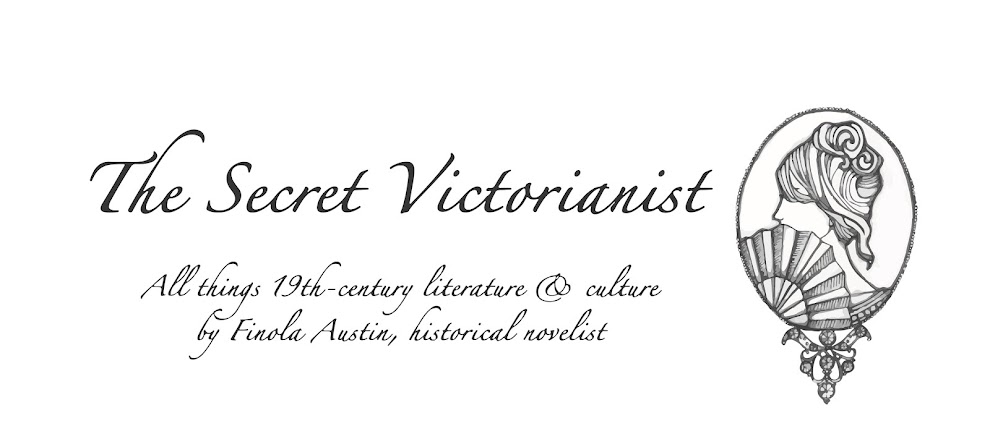Long before theorist and critic F.R. Leavis called for the ‘Jewish’
half of Daniel Deronda (1876) to be cut, George Eliot’s final novel was being seen
as disparate, ill-considered and in need of editing. In a letter written in
October 1876 to Madame Eugene Bodichon, Eliot herself had complained of readers
who:
‘cut the books to scraps and talk of nothing but Gwendolen.’
She did not see the book as fundamentally divided between
the Jewish and romantic plots aligning with Daniel and Gwendolen, arguing:
‘I meant everything in the book to be related to everything
else there.’
Contemporary criticism believed she had failed. A month
earlier, journal The Academy had
published the following critique:
‘the question here is whether the phase of Judaism now
exhibited, the mystical enthusiasm for race and nation, has sufficient
connexion with the broad human feeling to be stuff for prose fiction to handle.
We think that it has not.’
This distaste cannot be solely ascribed to
nineteenth-century anti-Semitism. Jewish and non-Jewish audiences reacted
unenthusiastically to the ‘half’ of the novel they found less relevant, with
the first extended Hebrew edition (by David Frischman in 1893) making cuts to
the gentile sections and an 1899 essay in the Ha-Shilo'ah arguing that the chapters dealing with Gwendolen have:
‘almost nothing to do with its main theme and basic idea [of
the novel].’
Even Eliot’s partner George Henry Lewes had seen it coming:
‘The Jewish element seems to me likely to satisfy nobody.’
For me, however, Eliot’s novel and its two apparent halves aren’t
only excusable but crucial for its thematic success. Gwendolen’s final meeting
with Daniel utterly confounds her expectations as she discovers for the first
time that she is not in the love plot she thought herself to be living:
‘‘‘A Jew!’ Gwendolen exclaimed, in a low tone of amazement,
with an utterly frustrated look, as if some confusing potion were creeping
through her system.’
Her confusion matches that of generations of readers and
Gwendolen is given the revelatory moment we expected for Daniel when first
reading of his unknown parenthood. Even more importantly, what Gwendolen learns
from this reversal of generic expectation is THE crucial lesson of the Eliot
universe:
‘she was for the first time feeling the pressure of a vast
mysterious movement, for the first time being dislodged from her supremacy in
her own world, and getting a sense that her horizon was but a dipping onward of
an existence with which her own was revolving.’
Gwendolen learns what Dorothea does in Middlemarch (1871-2) – that
inner life isn’t the sole preserve of the heroine. In the earlier novel this is
phrased as:
‘If we had a keen vision and feeling of all ordinary human
life, it would be like hearing the grass grow and the squirrel's heart beat,
and we should die of that roar which lies on the other side of silence.’
In Daniel Deronda,
the very structure of the novel points us to the same conclusion. Gwendolen
realises she has misinterpreted Deronda in her self-centredness:
‘A great wave of
remembrance passed through Gwendolen, and spread as a deep, painful flush over
face and neck. It had come first as the scene of that morning when she had
called on Mirah, and heard Deronda’s voice reading, and been told, without then
heeding it, that he was reading Hebrew with Mirah’s brother.’
And readers searching for a neatly concluded marriage plot
have done the same. Eliot’s presentation of Zionism then (while interesting) is
not then so much important in itself. Graham Handley writes in his introduction
of the novel’s ending:
‘The open ending of Daniel
Deronda does not suggest unreservedly that Mordecai [Daniel’s mentor] is
right or that his visions are anything but personal.’
It is the personal nature of a wide, transnational vision
which is precisely the point. This is a novel about vocation, and about
establishing a two-way relationship between the society and the individual.
Everything here is related to everything else – and this holds true not only of
the novel’s structure but of Eliot’s vision for the possibilities of human
interaction and sympathy. This is why Gwendolen can still learn from Daniel,
even while she is excluded from his particular religious vision. She writes:
‘I have remembered
your words – that I may live to be one of the best of women, who makes others
glad that they were born. I do not yet see how that can be, but you know better
than I. If it ever comes true, it will be because you helped me.’
What should be ‘E’ in my Victorian Alphabet? Let me know
here, on Facebook or by tweeting @SVictorianist!


No comments:
Post a Comment